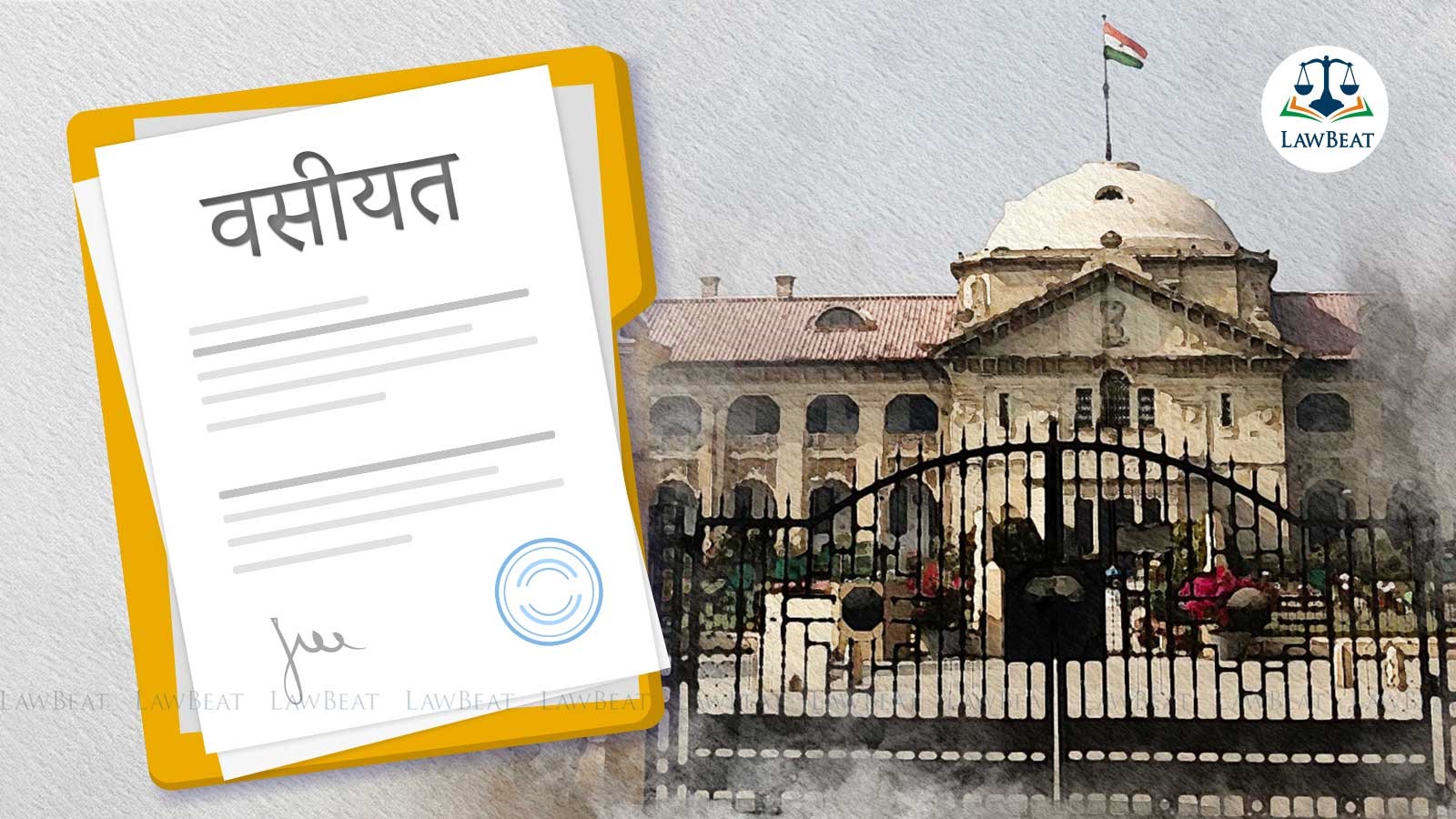Wills in Uttar Pradesh are not required to be registered: Allahabad HC

The 2004 amendment of the UPZA & LR Act had incorporated new provisions as Section 169(3) in it by the State legislature, making registration of Will compulsory
The Allahabad High Court has struck down sub-Section (3) of Section 169 of the UP Zamindari Abolition & Land Reforms (UPZA & LR) Act, 1950 so far as it requires a Will to be compulsorily registered.
"A Will for its non registration will not be void whether before or after the U.P. Amendment Act, 2004", held the division bench of Justices Ajit Kumar and Siddhartha Varma.
The 2004 amendment of the UPZA & LR Act incorporated new provisions as Section 169(3) in it by the State legislature, making registration of Will compulsory.
In a matter, a single judge bench of the high court faced two contradictory views taken by two co-ordinate benches: one in the matter of Sobnath Dube (In the Matter of: Late Kashinath Dube; reported in 2015) where it was held that the amendment of 2004 to the Act will be prospective and Will executed prior to the date giving effect to the amendment by the State Government will not require to be registered compulsorily.
Whereas, in Jahan Singh v. State of UP & Ors, another co-ordinate bench disagreed with the view taken in Sobnath Dube on the ground that unregistered Will taking effect after the date of amendment stood hit by amended provisions of 169(3) of the Act, 1950.
In Jahan Singh's case a view was taken, since a Will becomes effective only upon the death of the testator, every such Will which may come into effect after the amendment of Act of 2004, is required to be compulsorily registered.
Therefore, to resolve the conflict, the single judge bench referred the matter to the present division bench.
The division bench reframed the reference as: "Whether a Will reduced into writing prior to 23.08.2004 is required to be compulsorily registered in the event the testator dies after the said date."
Moreover, during the hearing, another issue arose as to whether the State legislature without the President's assent could have made registration of Will compulsory by incorporating a provision to this effect in law, as Will, intestacy, and succession under the Constitution fell as subject matter in the Concurrent List and Central Legislation was already there touching the subject of registration of Will under the Registration Act, 1908.
The division bench said that the object with which the 2004 Amendment had been introduced was to avoid the proliferation of forged Wills but it is to be kept in mind that Uttar Pradesh has largely an agricultural economy where all farmers are not literate and "there can equally be a case where a registered document is executed in suspicious circumstances, which if proved, would ultimately render the registered document void".
"Thus, a poor farmer may be compelled to knock the door of Courts of law and undergo the agony of a long drawn litigation where rich may have an upper hand," said the bench.
Further, the division bench highlighted that the Wills, intestacy, succession and transfer are in the Concurrent List under the Constitution of India and the Indian Registration Act continues to occupy the field qua subject matter of registration i.e. deeds and documents provided under Entry-8 of the List III of the Government of India Act, 1935 with the corresponding Entry-6 of the Concurrent List.
The division bench pointed out that the Registration Act, 1908 does not enlist the document of Will in the list of documents that are required to be registered, instead, its registration is optional at the discretion of the testator and even provisions have been made for registration of Wills posthumously by virtue of Section 40 of the said Act.
"...it is this Act that required amendment by the State to make its modified application in the State for getting document of registration of Will enlisted under Section 17 as there exists no pre-existing State law touching the subject matter," the division bench held.
"Accordingly, the provisions as incorporated under the ZA Act vide 169(3) of the Act of 1950 after its amendment in 2004 became contrary to the pre-existing Central Act. In other words, the provisions contained under Section 169(3) of the Act of 1950 and Section 17 read with Section 40 come in conflict with each other. This makes the State Act provision to be repugnant to the pre-existing Central Act and State Amendment Act, 2004 having no presidential assent is liable to be rendered void," the bench opined.
Therefore, court held sub-Section (3) of Section 169 of Act of 1950, in so far as it requires a Will to be compulsorily registered, to be repugnant to Section 17 read with Section 40 of the Indian Registration Act, 1908. Accordingly, court declared the amendment of Section 169(3) of the U.P.Z.A.L.R. Act to that extent void and struck down the said part of the provision.
"...sub-Section (3) of Section 169 having been declared as void to the extent it provides for registration of Will, the Wills in State of Uttar Pradesh are not required to be registered and a Will for its non registration will not be void whether before or after the U.P. Amendment Act, 2004," the bench concluded.
Case Title: Pramila Tiwari v. Anil Kumar Mishra And 4 Others
